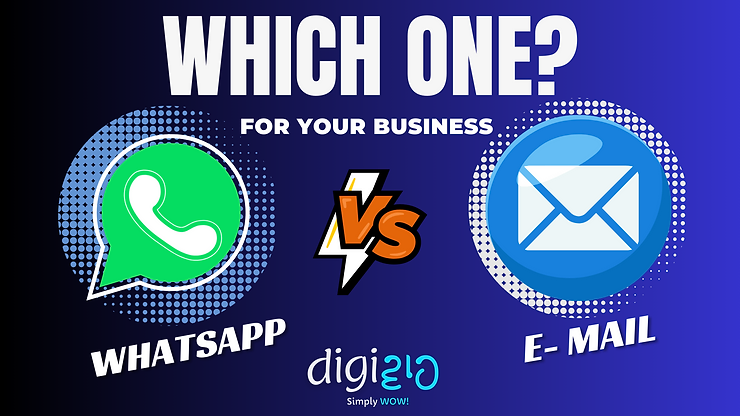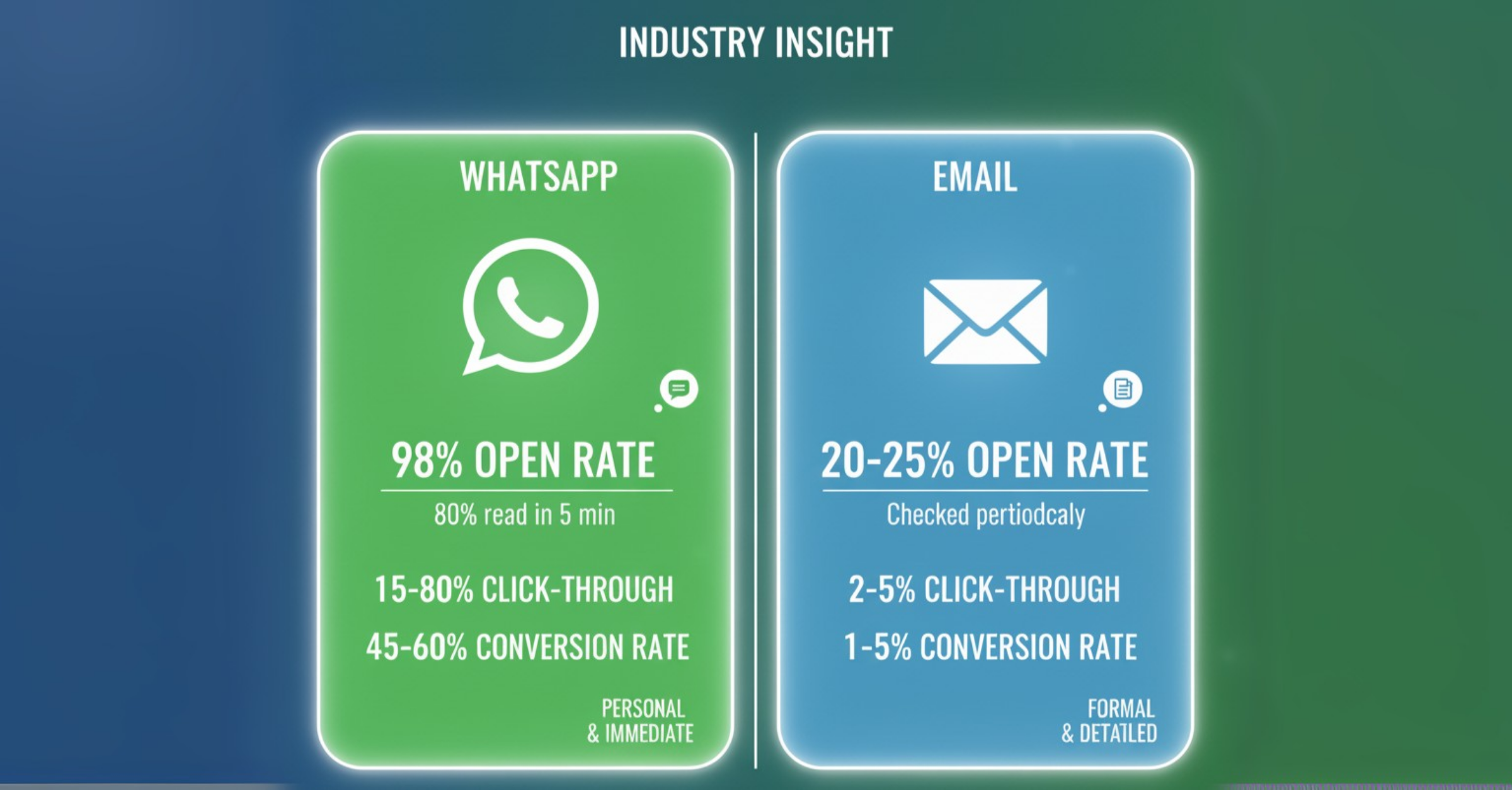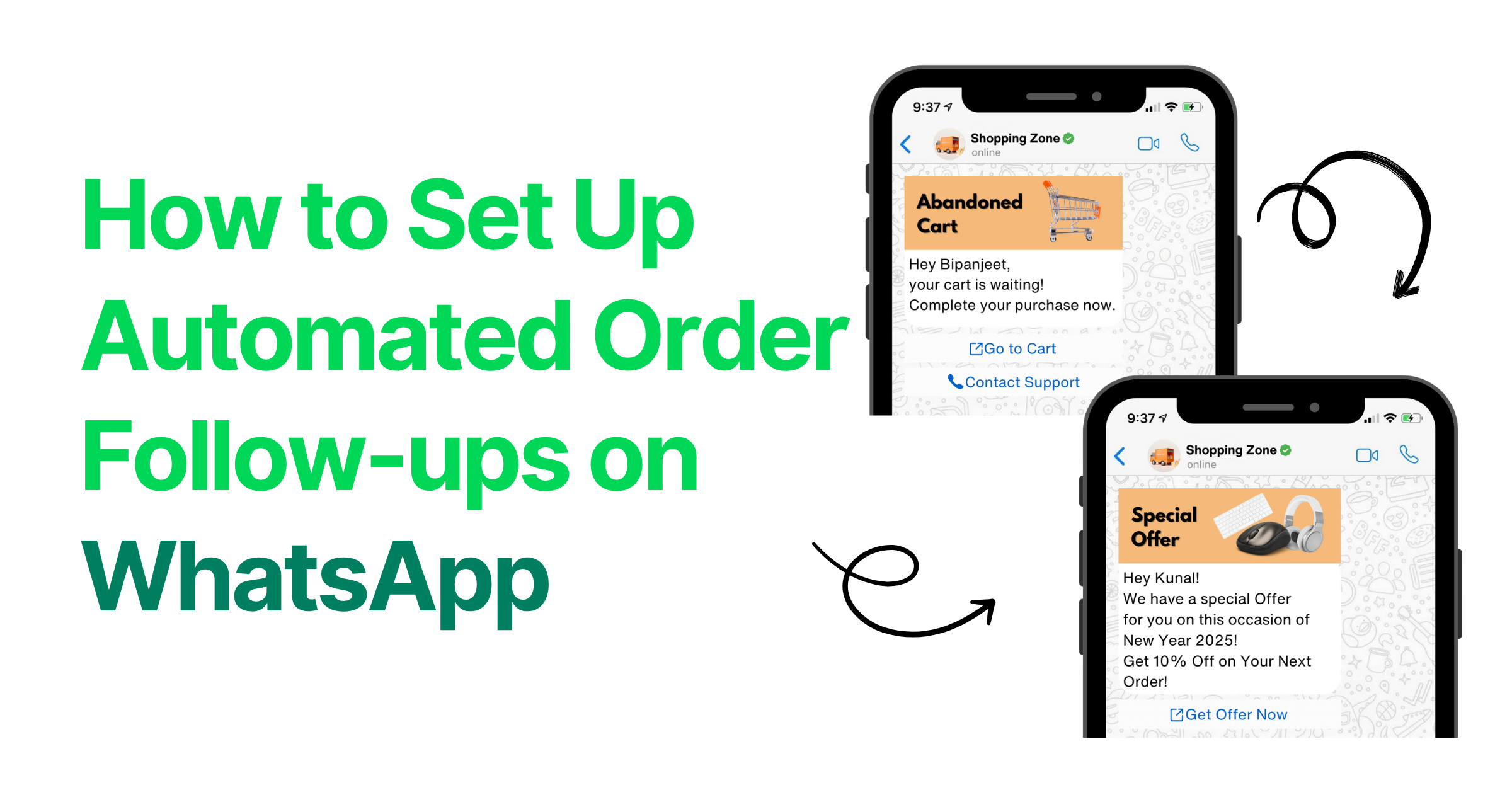In today’s digitally-driven world, it is essential for company success to establish a close relationship with your consumers. The marketing industry has historically been driven by Email, but WhatsApp API is quickly emerging as a major competitor. Let’s delve into a more in-depth analysis of how WhatsApp compares to Email.
1. Immediacy & Engagement:
Email: The typical inbox is overflowing with promotions, updates, social notifications, and more. Crucial messages is very likely to be mis-categorised as spam or hidden, which will lower engagement rates.
WhatsApp API: WhatsApp messages offer direct engagement. When you send a message via WhatsApp Business API, it immediately alerts the user. Given that many individuals have their phones within reach nearly 24/7, this ensures almost instantaneous interaction.
2. Open Rates:
Email: Various industry studies show that emails, depending on the sector and audience, have an average open rate of about 15%. The real challenge is ensuring that your content doesn’t get lost among the myriad of daily emails or trashed without being seen.
WhatsApp API: WhatsApp, in stark contrast, boasts of an enviable open rate of up to 98%. This suggests that users aren’t just passively receiving messages but are actively engaging with them. The direct and personal nature of WhatsApp ensures that messages won’t just be seen, but will be interacted with.
3. Personalisation & Interaction:
Email: Emails frequently function as a one-way communication channel, despite the fact that they can be personalised with user names and specific product recommendations. Most of the interactive component is missing.
WhatsApp API: WhatsApp’s interactivity is what gives it its relevance. It’s important to encourage two-way conversations in addition to conveying messages. Businesses must incorporate real-time discussions, respond to inquiries quickly, and forge deeper personal connections.
4. Security:
Email: With the rising number of phishing attacks, many users have become inherently suspicious of unfamiliar emails, which can hurt genuine business outreach.
WhatsApp API: One of WhatsApp’s cornerstones is its end-to-end encryption. This ensures that only the sender and recipient can read the content, thereby significantly enhancing trust and security in the platform.
5. Versatility:
Email: Though emails can embed images and videos, there’s always a gamble on whether they’ll display correctly, depending on the user’s email settings.
WhatsApp API: WhatsApp Business API offers a broad canvas for brands. From text to images, videos, locations, and even documents, businesses can craft diverse and engaging content strategies to enthral their audience.
6. Integration Capabilities:
Email: While emails can integrate with CRM and other systems, the interaction is usually static post the ‘Send’ action.
WhatsApp API: Its malleability allows businesses to automate processes seamlessly, from sending appointment reminders to integrating with e-commerce platforms for a holistic shopping experience.
While the endurance of email in the marketing sector is remarkable, it is difficult not to recognise the numerous advantages of WhatsApp Business API. It is clear why companies are turning to WhatsApp as their main marketing medium given its great open rates, genuine interaction, personalised touch points, and strong security measures.
Scan to know more!

Scan to know more!






